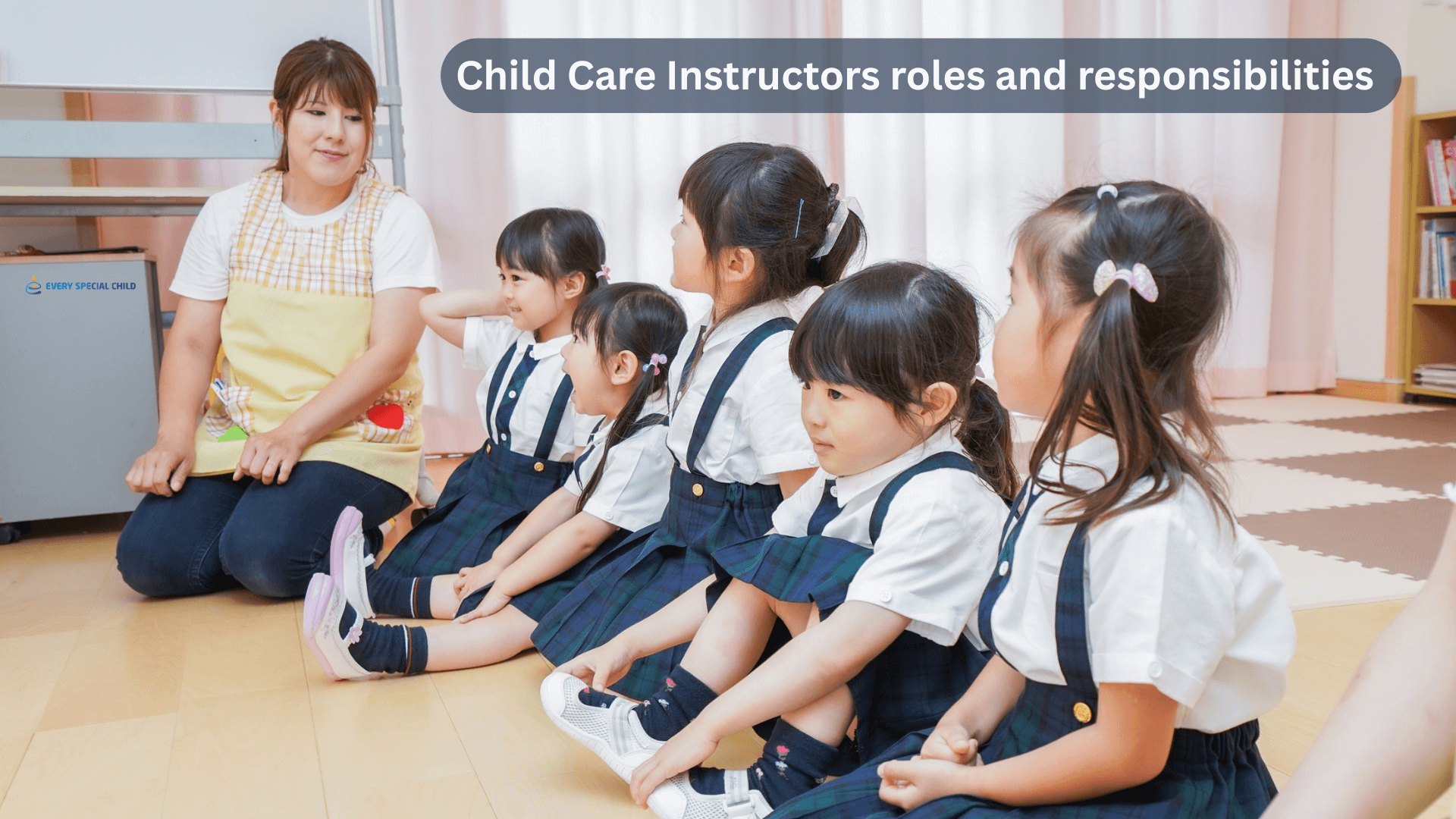
Child Care Instructors roles and responsibilities play one of the most crucial roles in shaping young lives. They’re not just babysitters; they are educators, mentors, and guardians rolled into one. Their responsibilities stretch far beyond keeping kids busy—they lay the foundation for a child’s social, emotional, and intellectual growth.
Child Care Instructors roles and responsibilities are trained professionals who work with children during their early development years. They may work in daycare centers, preschools, after-school programs, or even private homes. Their work isn’t only about supervision—it’s about nurturing growth. Read Our Blog
Nurturing and Supervising Children
At the heart of the role is supervision. Children need constant guidance, and instructors ensure they stay safe, engaged, and cared for.
Creating Safe Environments
From childproofing rooms to enforcing safety rules, instructors make sure children are protected at all times.
Planning Age-Appropriate Activities
Every activity—from puzzles to storytelling—should match the child’s developmental stage.
Supporting Early Childhood Development
Instructors promote physical, emotional, and cognitive growth through structured play and learning.
Encouraging Creativity and Curiosity
Children can freely express themselves via creativity, whether it is through painting or building blocks.
Ensuring Hygiene and Cleanliness
Children learn good hygiene habits from instructors, such as handwashing before meals.
First Aid and Emergency Response
Being trained in CPR and first aid is often mandatory for handling emergencies.
Monitoring Nutrition and Dietary Needs
They help ensure children eat balanced meals and respect dietary restrictions.
Building Trust and Emotional Security
Instructors provide comfort, reassurance, and a safe space for kids.
Recognizing and Supporting Special Needs
They identify developmental delays or emotional challenges and work with specialists when needed.
Conflict Resolution Among Children
Disputes over toys or attention are common, and instructors teach fairness and sharing. See Now
Communicating with Parents
Open dialogue with parents helps align child care with home values.
Reporting Progress and Behavior
Daily reports and updates give parents insight into their child’s development.
Collaborating with Other Educators
Teamwork ensures consistent care and learning.
Record Keeping and Documentation
Accurate records of attendance, progress, and incidents are essential.
Following State and Institutional Policies
Compliance with laws and policies ensures safe, quality care.
Managing Schedules and Routines
Consistency in routines provides children with structure and comfort.
Child Care Instructors roles and responsibilities prepare children for formal schooling by teaching early literacy, numeracy, and social skills. They also instill independence through daily routines like tidying up and sharing.
While digital learning tools can enhance education, instructors must balance screen time with active, physical play to ensure holistic development.
Child care instructors are bound by strict ethics. They must report any signs of neglect or abuse, protect children’s rights, and promote inclusivity regardless of background or ability.
With experience and further training, instructors can move into roles like preschool directors, education consultants, or even policy makers in early childhood education. Salaries vary by region, but demand for qualified professionals remains high.